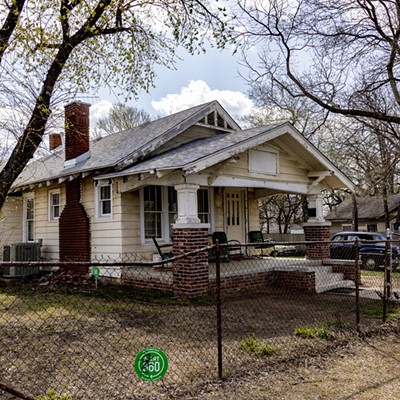Tuesday night's special election win for Democrats did little to tip the state's political scoreboard. But as a hundred supporters shouted inside a Western Avenue bar, it felt like one of the biggest victories for Oklahoma’s minority party in a long time.
“Each time I heard it was an uphill battle I got more strength,” said Democrat Cyndi Munson, moments after winning the open seat in House District 85. “This is amazing.”
For years Democratic candidates and campaign organizers pointed to Oklahoma City’s inner ring suburbs as a winnable battlefield. Changing demographics were seen as an open door for a party that holds no statewide office or majority power in the House or Senate. But in recent years Democrats were unsuccessful in when it came to wresting away a Republican seat, including in House District 85, where Munson lost to incumbent David Dank last year.
Following Dank’s death earlier this year, Munson announced her second campaign and found momentum as four Republicans battled in a primary race this summer.
Chip Carter, a vice president of corporate communications at Jones Public Relations, emerged from the summer primary and took a long list of political and corporate endorsements into Tuesday’s special election.
Munson took home a 8-point win according to unofficial results from the Oklahoma Election Board.
“This was a scary decision to try again after I had lost [last year],” Munson said. “But I knew I had the team to do it.”
Munson’s watch party attendance included other Democratic candidates who ran for election in recent years and current lawmakers.
“For years, many of us have stood by and watched election night and become more frustrated and depressed and thought ‘When is it ever going to change?’” House Minority Leader Scott Inman said. “And then somebody like Cyndi Munson steps up and says ‘I'll put my name on the ballot.’”
The 101-seat state house includes 29 Democrats, so Munson’s victory does not bring much more power to Democrats. But party leaders said it could spark momentum headed into another election year in 2016.
“The Democrats in Oklahoma don’t pick up races, we’ve had a hard time retaining seats that we’ve held,” said Andrew Rice, a former Democratic state senator. “[Munson’s victory] is symbolic because we felt like despite all of our struggles the demographic trends in Oklahoma City and Tulsa ... were moving more and more in a moderate direction.” Munson’s win was not only a positive trend for Democrats, it was also an additional female representative in a House that only has a handful.
“She is not just going to be a woman [representative], she is going to be a strong voice for women and girls,” said Cassi Peters, one of Munson’s campaign managers. “That comes from her background [working for] Girls Scouts, she has also helped start a pro woman [political action committee] to get more women elected.”
Carter enjoyed endorsements from Sen. James Lankford and Mayor Mick Cornett, and was also suspected to have a financial advantage by political observers on both sides of the aisle. Munson’s victory was played up by her team as a win for the underdog and a huge win for Democrats, even if it was just the pick up of one seat.
“It’s not just about money and endorsements and who you know; it’s about everybody who stopped believing in politics and what it means to lead in a state like Oklahoma,” Munson said, standing on the tips of her toes as she addressed her watch party crowd. “There is a chance and it's starting today.”







